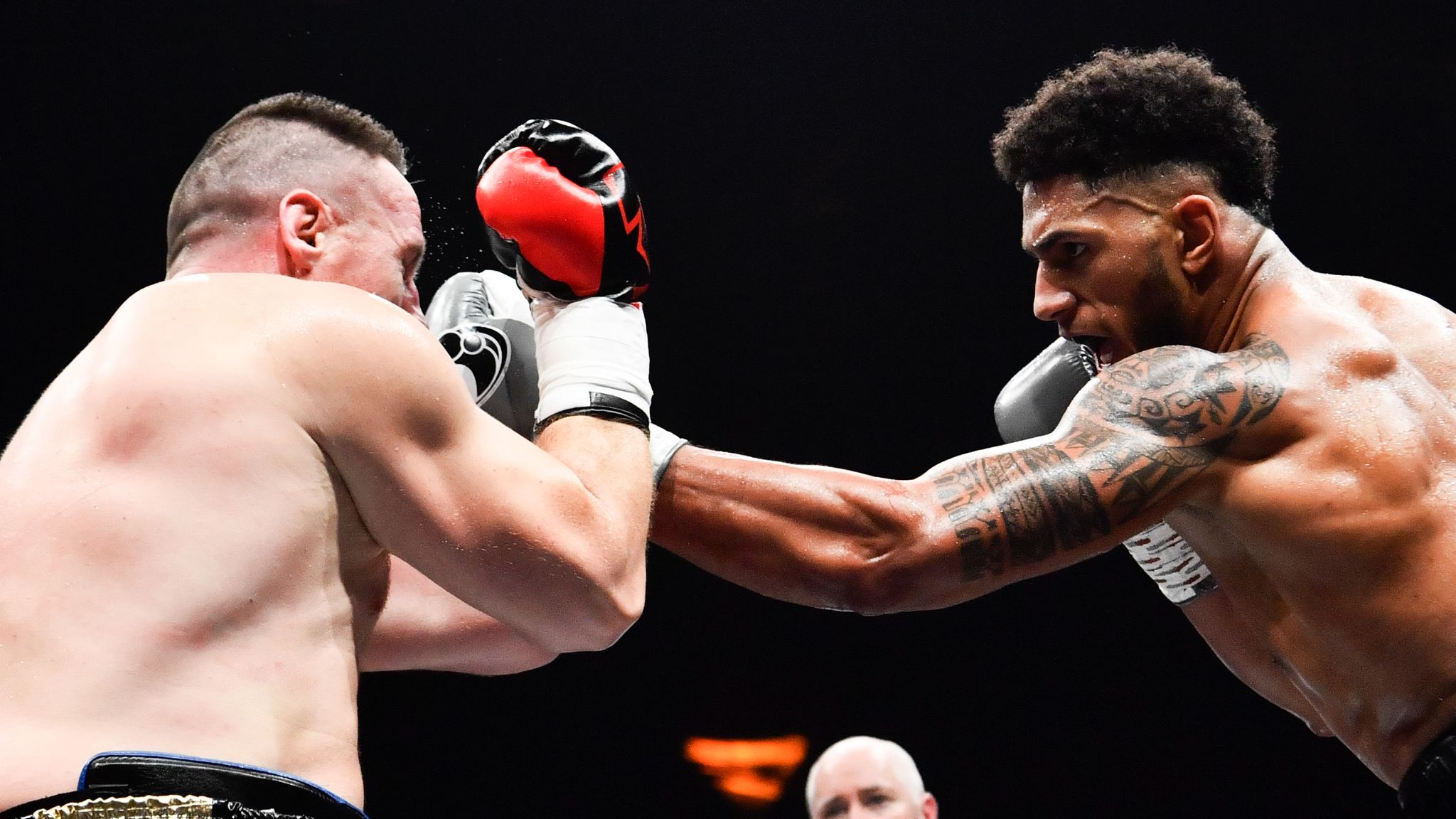In the high-stakes world of heavyweight boxing, the path to redemption is rarely straightforward. For Anthony Joshua, a former two-time world champion, the immediate future presents a crucial juncture. Following a surprising fifth-round defeat to Daniel Dubois eleven months ago, his fourth professional loss, speculation has swirled regarding his next opponent. While a curious detour into the realm of celebrity boxing with Jake Paul once loomed, the focus has now sharpened on a more traditional, yet equally compelling, professional challenge: a potential bout against French Olympic gold medallist, Tony Yoka.
The Shifting Sands of Speculation: From Crossover to Core Boxing
For a brief period, the idea of Anthony Joshua stepping into the ring with YouTuber-turned-boxer Jake Paul captured a certain segment of public imagination. Such crossover spectacles, while undoubtedly lucrative, often raise eyebrows among purists, sometimes hinting at a dilution of the sport’s competitive essence. However, with Paul now slated to face Gervonta Davis in an exhibition bout, the prospect of AJ engaging in what some might call a “farcical” encounter has, perhaps mercifully, receded. This shift signals a welcome return to the strategic planning typical of a fighter at Joshua`s level, seeking not just a paycheck, but a credible pathway back to the sport`s summit.
Carl Frampton`s Endorsement: A Voice of Logic
The call for Joshua to face Yoka finds a strong advocate in Carl Frampton, a respected former two-weight world champion whose insights are often grounded in astute boxing acumen rather than mere marketability. Frampton articulates a clear rationale for this matchup, positioning it as a strategic maneuver rather than a mere headline grabber:
“I think Tony Yoka’s a good fight for AJ. The Jake Paul fight against Joshua – I think it’s a one-round fight if it had happened. And maybe that’s the reason why Jake Paul doesn’t fancy it. I would like to see him in a fight like Tony Yoka. I think it’s a good fight. Two Olympic medallists, you can build a narrative around it, you can make a big story. And it’s a fight that the winner can go on to a bigger and better fight afterwards.”
Frampton’s candid dismissal of the Jake Paul matchup as a foregone conclusion speaks volumes about the perceived competitive imbalance. His unequivocal support for Yoka underscores the strategic value of such a contest, offering a narrative richness that extends beyond fleeting hype to a genuine sporting challenge.
Two Olympic Golds, Divergent Professional Paths
The proposed matchup between Joshua and Yoka is particularly intriguing due to their shared Olympic pedigree: both are super-heavyweight gold medallists, Joshua from London 2012 and Yoka from Rio 2016. Yet, their professional trajectories have diverged quite significantly. While Joshua soared to unified world titles and global superstardom, Yoka`s professional journey, though initially promising, has been less stellar, marked by inconsistent performances and a struggle to consistently replicate his amateur dominance.
This stark contrast creates a compelling narrative. For Joshua, it’s an opportunity to reassert his authority against a technically skilled, albeit professionally less proven, opponent who carries the considerable weight of Olympic gold. For Yoka, it represents a chance to validate his amateur promise on the grandest stage, potentially reigniting a career that has, by his own admission, somewhat stalled. It’s a classic tale of two paths converging, both seeking to define their professional legacies.
The African Connection: A Historic Backdrop
Adding another layer of intrigue to this potential clash is the rumour of a venue in Ghana. Matchroom Boxing CEO Frank Smith’s recent visit to a stadium site in the West African nation has fueled speculation, hinting at a fight that could transcend the typical boxing circuit. Staging such a high-profile bout in Africa would be a significant move, echoing past ambitions to bring major boxing events to the continent and tapping into a burgeoning market.
A fight in Ghana would not only connect with a passionate and rapidly growing boxing fanbase but also provide a historic and culturally rich backdrop. It offers Joshua a chance to further connect with his heritage and potentially solidify his global appeal as a truly international icon. It`s a strategic choice that adds significant cultural and geographical weight to what is already a pivotal sporting event.
What`s at Stake for Both Fighters?
For Anthony Joshua, this fight is about more than just a victory; it`s about rebuilding momentum and proving that his recent setbacks are temporary blips, not defining moments. A convincing performance against a fellow Olympic champion would be a powerful statement, reinforcing his status as a legitimate and formidable contender for future world title shots in a competitive heavyweight landscape.
For Tony Yoka, the stakes are arguably even higher. Facing a global name like Anthony Joshua is a career-defining opportunity, a veritable crossroads. A win, or even a strong, competitive performance, could catapult him into the upper echelons of the heavyweight division, silencing doubts about his professional capabilities and fulfilling the promise of his Olympic gold. It’s a chance for redemption, a shot at turning Olympic potential into undeniable professional prowess.
Conclusion: A Fight That Makes Sense
In a heavyweight landscape often dominated by sensationalism and the allure of crossover spectacles, an Anthony Joshua vs. Tony Yoka matchup emerges as a refreshingly logical and strategically sound proposition. It offers a rich narrative of shared Olympic glory and divergent professional journeys, competitive balance, and the potential for a culturally significant event. As Carl Frampton rightly points out, this is a fight where the winner can genuinely progress to “bigger and better” things, affirming their place in the division. For boxing aficionados weary of manufactured drama, this contest offers a return to the essence of the sport: two highly skilled athletes, with Olympic gold in their past, battling for a brighter, more defined future in the present.

